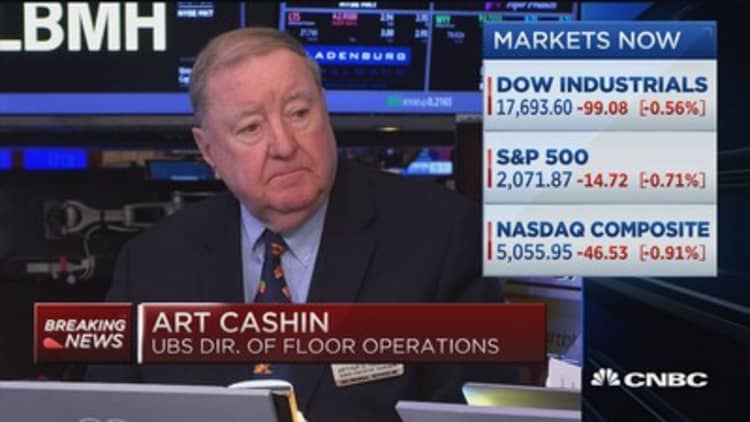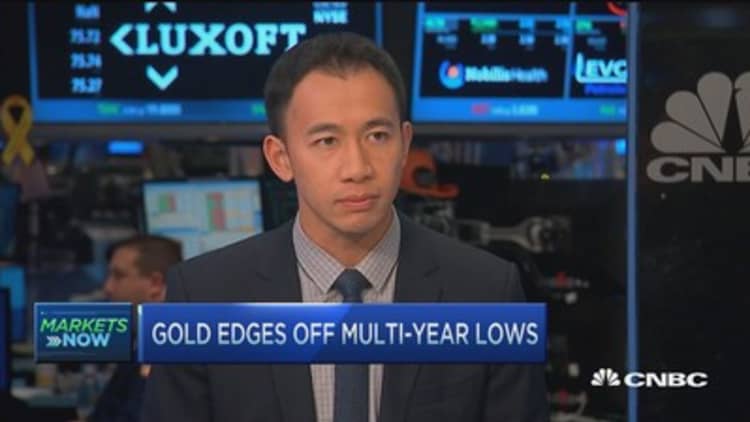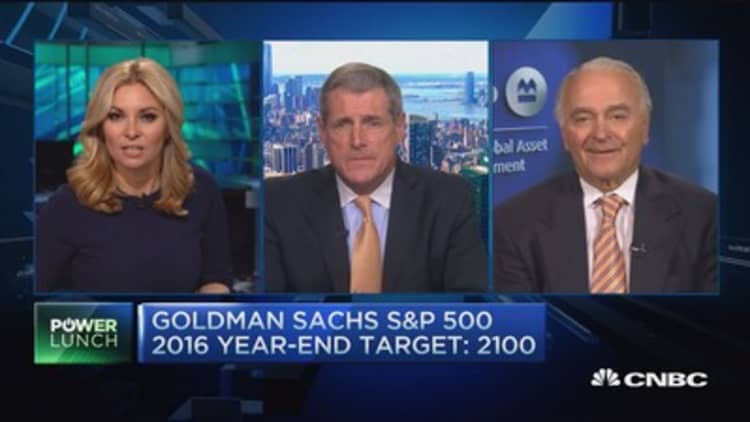


More terrorist attacks in Paris could derail global financial markets, Art Cashin, director of floor operations for UBS at the NYSE, said Tuesday.
"If they come back in Paris … you would see the market react very, very strongly," Cashin told CNBC's "Squawk Alley." "It would show a French vulnerability that people are not assuming quite yet, and that would be potentially horrific for the market."
Geopolitical tensions have risen sharply ever since the so-called Islamic State carried out a series of coordinated attacks in Paris, which left scores dead and hundreds more injured. On Tuesday, tensions increased further after the Turkish military downed a Russian fighter jet.
Russian President Vladimir Putin said the attack is a "stab in the back" and said it would have serious consequences for the Turkish-Russian relationship.
Still, U.S. equities managed to pare earlier losses in afternoon trading.
"It's an unfolding story, and people can't figure out exactly what's going to build into it. You had a few words out of Putin; let's see how really angry he becomes, how do the other players break out in this case, and what continues to happen," Cashin said.
"The story for this year has been about uncertainty. That's been uncertainty about the Fed, uncertainty about China and geopolitical risk. I think the story today is that geopolitical risk has been something with us for the last 15 years. Whether it's Crimea, or Afghanistan, or Iraq, and the most important thing over the last 15 years has been to focus on the economy … and not get out because there is uncertainty in the world," James Liu, global market strategist at JPMorgan Funds, told CNBC's "Squawk on the Street" on Tuesday.
Liu also discussed the Federal Reserve's glide path for raising rates, saying he thinks the central bank may have to hike faster than it wants to.
"If the labor market continues to improve at the pace it's been, we could easily be between 4 percent and 4.5 percent on the unemployment rate within 12 months," he said.
"If you look at inflation, we do think that a lot of the effects of the dollar and oil will roll off beginning of next year, and what the Fed might find themselves in is this bind where suddenly all these measures have gotten far further along than they expected, so they may have to move further along than they expected, and they may have to move far more quickly than we thought."
In a Tuesday note, Goldman Sachs said the Fed will increase rates steadily "for several years," hindering stock market growth and leading to no gains next year.
However, Art Hogan of Wunderlich Securities told CNBC's "Power Lunch" on Tuesday he disagrees with the banking giant's assessment.
Hogan said Goldman is "taking the last time the Fed raised rates ... and copied that model, saying 'OK, the Fed is going to raise rates 25 basis points at every meeting until they get their terminal rate,' and then applying a [price-earnings] multiple on what [Goldman] thinks the economy will do, as opposed to looking at what this Fed has done: being very data dependent."




